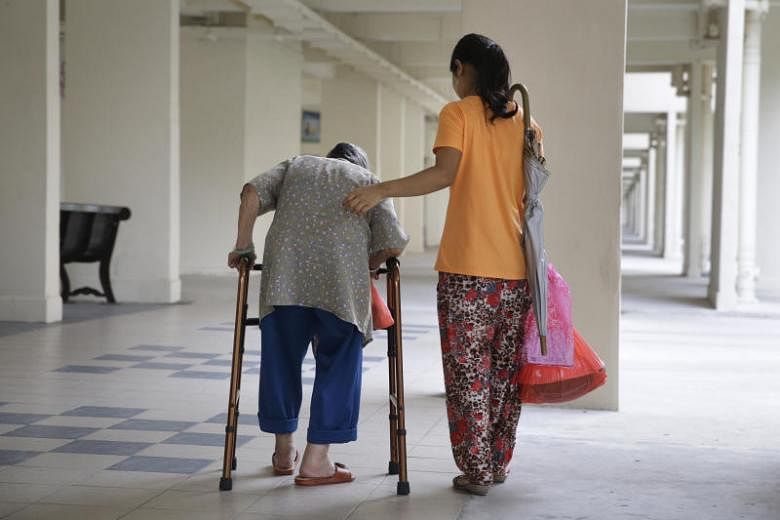SINGAPORE - A pilot scheme that allows families to hire foreign workers to clean their homes for a short period could be expanded to include foreigners giving part-time caregiving services.
But such a move would hinge on whether there is industry demand for such a service, said Senior Parliamentary Secretary for Manpower and Education Low Yen Ling in Parliament on Tuesday (May 7).
She was responding to calls by two MPs to provide more short-term domestic help for households.
Mr Desmond Choo (Tampines GRC) asked the Manpower Ministry to introduce short-term work permits for foreign domestic workers so that employment agencies can cater to families that need such help.
Ms Low said the ministry had piloted the Household Services Scheme since September 2017, which lets foreign workers be deployed to specific households for a short period.
Unlike regular foreign domestic workers who require a two-year work permit to work here, these foreign workers are hired by service providers directly and have longer contract durations, she said.
They also live in company-provided accommodation instead of at the households where they work, and can work in multiple households.
Mr Melvin Yong (Tanjong Pagar GRC) noted, however, that the scheme currently is only for companies that provide cleaning services. He urged the ministry to extend the scheme to households that need caregiver help.
Ms Low said the ministry will look into his suggestion.
"I want to assure Mr Melvin Yong and Mr Desmond Choo that MOM is prepared to consider (including) companies which provide caregiving services, or perhaps short-term respite care with the Health Ministry's support," she added.
Mr Yong also asked for the rationale for giving foreign maids a two-year work permit.
Ms Low said the duration helps them pay their debts to their employment agents as well as gives them and their employers time to build a relationship that works.
The maids, she added, need time to earn enough to repay the fees they typically owe their agents for getting them work in Singapore. These placement fees are usually paid by deducting the amount from their pay in the first few months of work.
She also said employers may need the two-year period to train their maids.
In short, the duration provides "certainty and stability" for both the maids and employers, she added.


